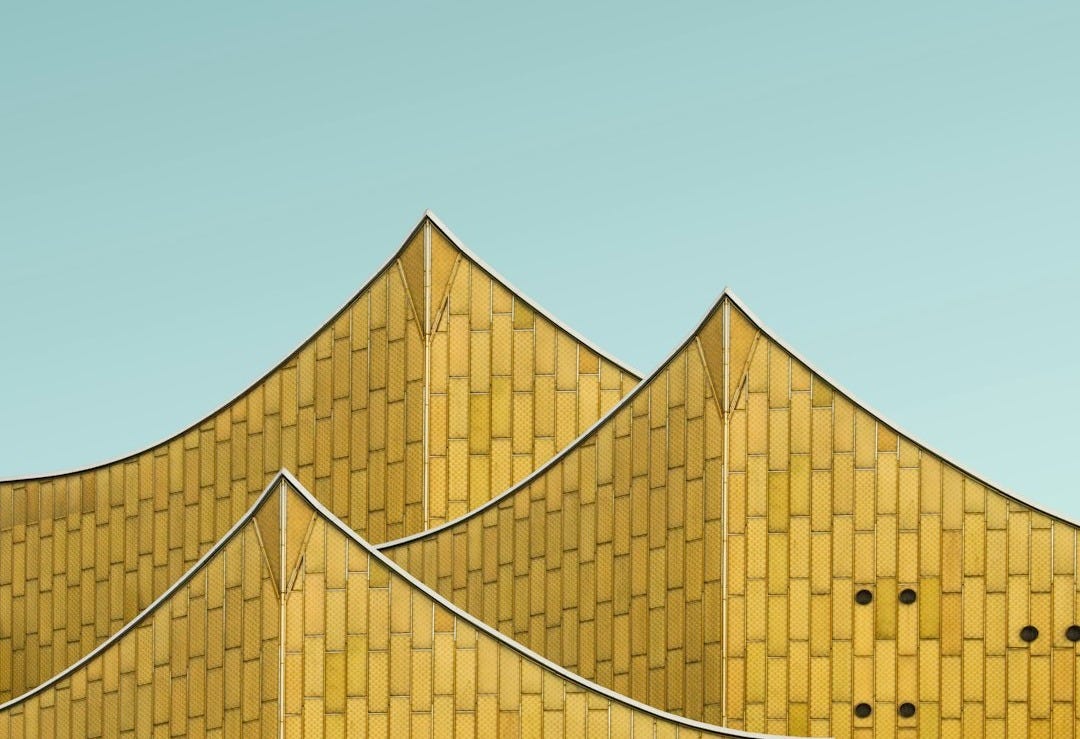THE PARADOX OF ORDER & UNCERTAINTY: Today's tech pushes us into either/or mindsets, but life is not like that. Living is complex. We end up feeling trapped in jobs that force us to think in a code that can’t accommodate our realities. This conversation is about how to reimagine software architecture and the ways we build technologies to include real life uncertainty & complexity. What if we considered this from the start, and still understood the computational benefits of the binary? More general ideas inspired by this conversation:
Remember the feeling of being alive; it’s not technological.
Rethink what you want from your technologies and choose from there.
We can have technologies that do not force either/or choices (ones that do not work on binary clicks of like, follow, etc.) and ask architects to develop architectures that take uncertainty into consideration, make space for real life messiness, and ride this reality like a wave into new potentials.
Episode #59: Residue, Complexity Coding, & the Software Architect’s Paradox with Barry O'Reilly
In this episode of Love and Philosophy, we sit down with Barry O'Reilly, a seasoned software architect with a deep background in pure mathematics and experience at top companies like Microsoft. He discusses his innovative concept, Residuality Theory, which introduces complexity theory into software development for the first time. Barry explains how traditional linear thinking in coding often leads to rigid and brittle constructs that fail to adapt to the constantly changing business environments. By embracing paradoxes and uncertainties using theories from philosophy and complexity sciences, Barry offers a new perspective on software architecture that combines the logical rigor of code with the adaptability required for real-world human systems. Join us for this thought-provoking conversation that bridges the gap between coding and philosophy, and learn how embracing uncertainty can lead to more resilient and flexible software solutions.
00:00 The Rigidity of Software vs. The Chaos of Business
00:46 The Philosophical Roots of Computer Science
01:28 The Architect's Paradox: Linear Thinking vs. Human Systems
02:20 Introducing Residue: Adapting to Change
03:16 The Relief of Embracing Uncertainty
04:16 Welcome to Love and Philosophy
11:34 Meet Barry O'Reilly: From Math to Software Architecture
16:02 The Journey to Complexity Theory
21:25 Handling Uncertainty in Software Projects
26:47 The Evolution of Software Engineering
31:42 The Birth of Residue and Ity Theory
38:17 The Need for a New Philosophical Approach
43:36 The Immaturity of Software Engineering
46:03 Personal Frustrations and Philosophical Pursuits
46:40 The Reflective Practitioner and Instinctive Problem Solving
47:13 Linear Thinking vs. Embracing Uncertainty
49:34 Philosophical Foundations in Software Engineering
01:05:03 Hyper Liminality and System Resilience
01:13:45 The Role of Play and Forgiveness in Software Development
01:19:16 Conclusion and Final Thoughts
Architect's Paradox: Uncertainty and the Philosophy of Software Architecture
Residues: Time, Change, and Uncertainty in Software Architecture.
You Tube Talks:
(Kaufmann Neworks are Boolean: see here if you want to know more, but you don't need to know anything about them to understand this episode)


Quick but Deep Summary for this episode:
⎔Complexity Science and Software: A New Relationship
In the ever-evolving world of software development, fresh perspectives are vital to staying relevant in an industry faced with constant challenges. One such perspective comes from Barry O'Reilly, a visionary in the realm of software architecture, who offers a groundbreaking approach by integrating complexity science with traditional software design. Let's delve into how this relationship could redefine the way we think about coding and systems architecture.
👩🏻💻Understanding Software's Rigid Nature
Software engineering has traditionally operated with a framework of linear thinking, focusing on creating systems that follow a predictable set of rules. Developers and architects have been taught to apply logical, step-by-step solutions to build code. While this method has allowed intricate systems to flourish, it struggles to adapt to the unpredictable nature of real-world business environments, leading to systems that are often brittle and vulnerable to change.
Barry O'Reilly highlights the paradox at the heart of this challenge: the very linear thinking required to invent and build computers is poorly suited to the dynamic, complex problems found in human systems. When rigid, static models are applied to ever-shifting business realities, software often breaks, requiring costly and time-consuming adjustments. We need to think laterally as well. And in mulitiple dimensions. And Residuality theory is a start.
✭A Novel Approach: Embracing Uncertainty via Complexity Science
O'Reilly proposes a radical shift by placing uncertainty at the center of software design. His method draws from complexity science and process philosophy, enabling systems to be more resilient and adaptable to unforeseen challenges. Instead of attempting to eliminate uncertainty, his approach leverages it to produce systems that are not only robust but also creatively resilient in the face of change.
This new methodology is expressed through what Barry calls "residual" architecture. It moves away from static snapshots, instead envisioning software as a series of interconnected possibilities—trouser legs as he metaphorically describes them—that accommodate various outcomes and conditions. This flexibility allows systems to adapt to random events and evolve with their environments, much like organisms in a natural ecosystem.
❁Bridging Philosophy and Technology
O'Reilly's work draws deeply on philosophical traditions, from Plato to modern process philosophers. He argues that the principles of historical philosophical discourse can hugely benefit modern software practices. By borrowing concepts from thinkers like Deleuze and Kauffman (and contrasting a unique take on Plato), he frames a new understanding of how software can be developed and managed, offering tools that help industry professionals navigate and thrive amidst uncertainty.
🤖Transforming the Industry
For those entrenched in the world of coding, Barry O'Reilly's approach offers both relief and opportunity. It provides architects and developers with a structured yet flexible framework for understanding and engaging with complexity. It shifts the mindset from one of rigid control to one of dynamic adaptation, enabling software professionals to embrace chaos as a potential advantage rather than a hindrance.
By incorporating complexity science into software architecture, professionals can transcend traditional boundaries of engineering, fostering a culture of creativity, play, and innovation. This transformative approach not only changes how software is built but also expands the horizons for application in various fields, inviting a more profound engagement with life and technology.
💫 Looking Forward
As Barry O'Reilly continues to share his insights through talks, books, and courses, the software industry stands on the brink of a paradigm shift. His concepts challenge us to rethink our models and redefine our strategies, ultimately paving the way for more resilient and adaptable technological ecosystems.
In embracing this new relationship between complexity science and software, developers and architects are invited to explore an exciting frontier—one that holds the promise of creating systems as dynamic and rich as the environments they operate within. Coders are not clones, nor do we want them to be.










Share this post